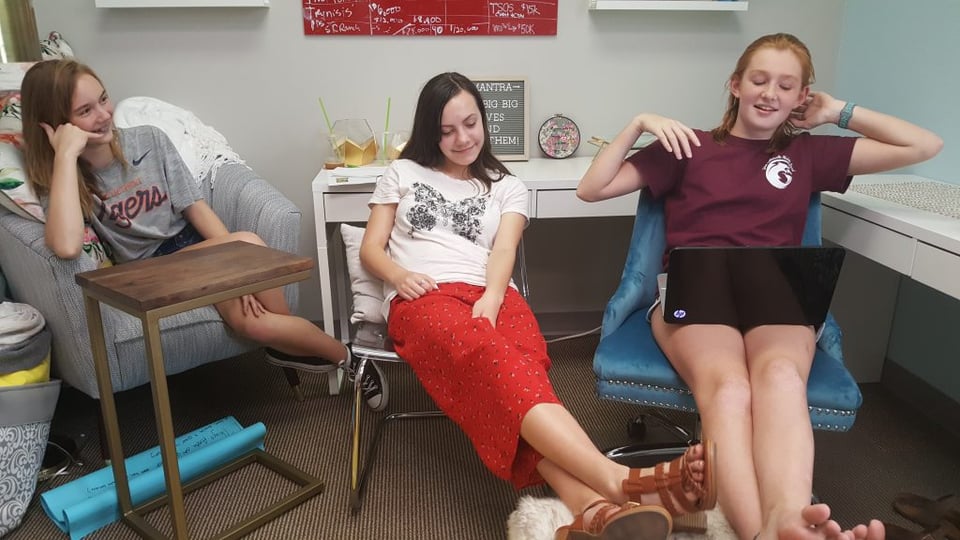You’re Right. Sales Role Playing Sucks. Try This Instead
No one and I mean NO ONE loves it when I’ve ever asked them to role-play a sales scenario.
It’s hard to explain how many times I’ve gotten eye rolls when I brought up role-playing through a scenario.
Why do we hate it so much?
Well, it’s awkward. Everyone’s staring at you – thinking, “glad it’s not me, you poor sucker,” and that adds pressure on top of repeating what we’ve just barely grasped by passive learning (sitting and listening to an instructor).
Role play itself can be a great tool, but BY ITSELF, doesn’t accomplish what we set out to achieve when applied—which is usually skill competence and ultimately, skill mastery.
At best, role play wakes everyone up in the room and accomplishes “skill deficit awareness” where we all realize:
- This is harder than it looks and
- I’m glad it wasn’t me they plucked from the crowd to participate and embarrass myself
So, how do we expose sellers to opportunities to practice skills before they try them out (and potentially crash and burn) on clients or customers?
Um, role play? But let’s improve upon it. Let’s call it something else.
Active Practice? Skill Experimentation? Skills Practice?
Sure, how about Skills Practice?
Skills Practice sounds better to me in that, we know with practice, our expectations are that we will improve over time. We make mistakes, receive feedback, and then correct or make changes. No one expects you to be perfect in practice, right!?!
Unlike role play, Skills Practice is NOT:
- Memorizing scripts
- Pretending to be someone you’re not
- Attempting to control the scenario
- Embarrassing people for making mistakes
- Expecting perfection or mastery with first exposures
Here’s what excellent Skills Practice should look like:
- Practice applying new skills (moving from comprehension to competence, to mastery
- Participants contribute to their own learning (they use their own voice and language, contribute their own ideas and thoughts)
- Think through variables (walking through scenarios multiple times and with several partners, contributors identify zig and zag moments and articulate what they will do and say in those moments)
- Create flexibility and agility (Instead of hard memorizing, participants understand the concepts, meaning, and understand how to journey to the end goal by different means or paths)
- Multiple opportunities to practice (Reinforcing the learning curve through comprehension, competence, and mastery – requires more than a onetime training “event.”)
I have to admit, I’ve always been the first to raise my hand to participate in role-play exercises.
Maybe it’s because I’ve always loved theatre, or because I was a middle child and never got enough attention.
Or, it’s probably because I’m weirdly comfortable making mistakes and happen to be pretty good at thinking on my feet (all that improv practice in theatre).
However, I do think differently now and look for more opportunities to help sellers practice skills instead of using more traditional role-play scenarios.
And, it’s never too early to start! Just this last week, my Girl Scouts created talking points for some calls they’re going to make to complete a cool community service project. They’re not selling anything (at least, not in THIS situation) but they are asking for information and asking for partnership with the people they’re calling.
These are 13-year-old girls … so what did we do?
We practiced our skills.
They felt silly. They read their questions. They made mistakes. They ad-libbed. They changed the scripts. They added their own ideas. They worked through potential answers. They talked through potential roadblocks. They asked more questions to clearly understand what they needed to accomplish through the calls.
After several rounds of practice, I felt they were ready and “competent” in their mission.
Throughout the next week, they’ll practice with their parents and with each other before they pick up the phone and make their phone calls.
I’ll let you know how they did.
Skills Practice.
Don’t roll your eyes. Embrace opportunities to practice and improve. Go beyond the one-dimensional Role Play scenarios. Set up better circumstances and you’ll get better results!

.webp?width=12693&height=4513&name=Sauce%20Logo%20Dark%20Ht%20(1).webp)

.webp?width=180&height=64&name=Sauce%20Logo%20Dark%20Ht%20(1).webp)










